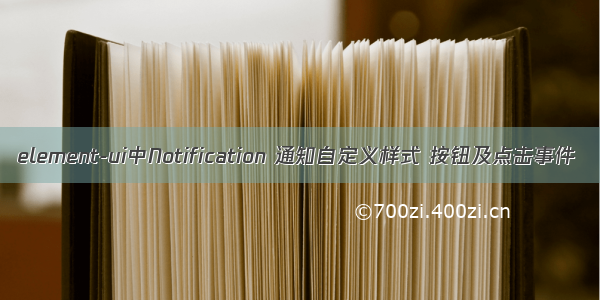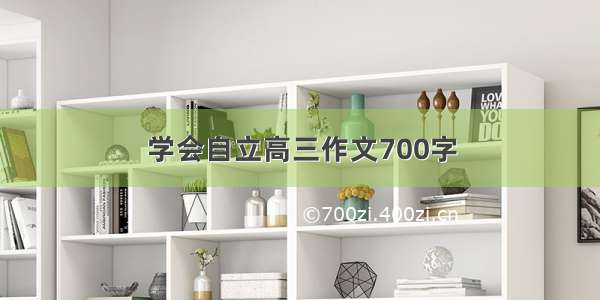
去除UITabBar上面黑线:
-(void)removetopblackline{if(@available(iOS 13.0, *)) {UITabBarAppearance* tabbarAppearance =[UITabBarAppearance new];tabbarAppearance.shadowImage = [self imageWithColor:[UIColor clearColor]];//或者下面// tabbarAppearance.shadowColor=[UIColor clearColor];self.tabBar.standardAppearance=tabbarAppearance;}else{self.tabBar.backgroundImage = [UIImage new];self.tabBar.shadowImage = [UIImage new];}}- (UIImage *)imageWithColor:(UIColor *)color {CGRect rect = CGRectMake(0, 0, 1, 1);UIGraphicsBeginImageContextWithOptions(rect.size, NO, 0);[color setFill];UIRectFill(rect);UIImage *image = UIGraphicsGetImageFromCurrentImageContext();UIGraphicsEndImageContext();return image;}
// 取消tabber的背景色
[[UITabBarappearance] setShadowImage:[[UIImagealloc]init]];
[[UITabBarappearance] setBackgroundImage:[[UIImagealloc]init]];
//改变tabBar的背景颜色
[tabC.tabBarinsertSubview:[selfdrawTabbarBgImageView] atIndex:0];
tabC.tabBar.opaque =YES;//透明
======================
#import <UIKit/UIKit.h>
@interface UIView (Frame)
@property (nonatomic,assign) CGFloat x;
@property (nonatomic,assign) CGFloat y;
@property (nonatomic,assign) CGFloat width;
@property (nonatomic,assign) CGFloat height;
@end
=============
#import "UIView+Frame.h"
@implementation UIView (Frame)
//重写getter方法
- (CGFloat)x {
returnself.frame.origin.x;
}
//重写setter方法
- (void)setX:(CGFloat)x {
CGRect frame =self.frame;
frame.origin.x = x;
self.frame = frame;
}
- (CGFloat)y {
returnself.frame.origin.y;
}
- (void)setY:(CGFloat)y {
CGRect frame =self.frame;
frame.origin.y = y;
self.frame = frame;
}
- (CGFloat)width {
returnself.bounds.size.width;
}
- (void)setWidth:(CGFloat)width {
CGRect bounds =self.bounds;
bounds.size.width = width;
self.bounds = bounds;
}
- (CGFloat)height {
returnself.bounds.size.height;
}
- (void)setHeight:(CGFloat)height {
CGRect bounds =self.bounds;
bounds.size.height = height;
self.bounds = bounds;
}
@end
=============
1.完全自定义tabBar
#import <UIKit/UIKit.h>
@interface CZTabBarButton : UIButton
@end
============
#import "CZTabBarButton.h"
@implementation CZTabBarButton
//让按钮不具有高亮状态
- (void)setHighlighted:(BOOL)highlighted {
}
@end
============
#import <UIKit/UIKit.h>
@class CZTabBar;
@protocol CZTabBarDelegate <NSObject>
- (void)tabBarDidClickedButton:(CZTabBar *)tabBar selectedIndex:(NSInteger)selectedIndex;
@end
@interface CZTabBar : UIView
//1 初始化tabBAr的对象
+ (instancetype)tabBarWithSBNames:(NSArray *)sbNames;
@property (nonatomic,weak) id<CZTabBarDelegate> delegate;
@end
====================
/*
自定义tabBAr的步骤
1 创建自定义类继承自UIView-写类方法,初始化tabBar对象
2 创建按钮-设置图片和大小
3 设置按钮的位置--创建了UIView的分类, x,y,width,height
4 给按钮注册点击事件--设置当前按钮选中-上一个按钮不选中
5 第一个按钮默认选中
6 自定义按钮,去掉高亮状态.把事件换成touchDown
7 点击按钮切换控制器.记录当前按钮的索引代理通知控制器切换
*/
#import "CZTabBar.h"
#import "UIView+Frame.h"
#import "CZTabBarButton.h"
@interface CZTabBar ()
//记录上一次点击的按钮
@property (nonatomic,weak) UIButton *preButton;
@end
@implementation CZTabBar
//1 初始化tabBAr的对象并且生成对应子控制器的按钮
+ (instancetype)tabBarWithSBNames:(NSArray *)sbNames {
CZTabBar *tabBar = [[selfalloc] init];
//1.1 生成对应子控制器的按钮
for (NSString *sbNamein sbNames) {
CZTabBarButton *btn = [CZTabBarButtonbuttonWithType:UIButtonTypeCustom];
//让按钮记录下来.按钮的索引
btn.tag = tabBar.subviews.count;
[tabBar addSubview:btn];
//设置图片
NSString *imgName = [NSStringstringWithFormat:@"TabBar_%@_new",sbName];
NSString *selImgName = [NSStringstringWithFormat:@"TabBar_%@_selected_new",sbName];
[btn setImage:[UIImageimageNamed:imgName] forState:UIControlStateNormal];
[btn setImage:[UIImageimageNamed:selImgName] forState:UIControlStateSelected];
//设置按钮的大小-让按钮的大小和内容的大小一致
[btn sizeToFit];
//1.2 注册事件,点击的时候高亮显示
[btn addTarget:tabBaraction:@selector(btnClick:)forControlEvents:UIControlEventTouchDown];
}
//让第一个按钮选中
UIButton *first = [tabBar.subviewsfirstObject];
[tabBar btnClick:first];
return tabBar;
}
//1.2 注册事件,点击的时候高亮显示
- (void)btnClick:(UIButton *)sender {
//让上一次按钮不选中
self.preButton.selected =NO;
//让当前按钮选中
sender.selected =YES;
//记录上一次点击的按钮
self.preButton = sender;
//点击按钮切换控制器
if ([self.delegaterespondsToSelector:@selector(tabBarDidClickedButton:selectedIndex:)]) {
[self.delegatetabBarDidClickedButton:selfselectedIndex:sender.tag];
}
}
- (void)layoutSubviews {
[superlayoutSubviews];
//设置按钮的位置
int i =0;
for (UIButton *btnin self.subviews) {
btn.y =0;
btn.x = btn.width * i;
i++;
}
}
@end
==================
#import <UIKit/UIKit.h>
@interface CZTabBarController :UITabBarController
@end
===============
#import "CZTabBarController.h"
#import "CZTabBar.h"
@interface CZTabBarController () <CZTabBarDelegate>
@end
@implementation CZTabBarController
- (void)viewDidLoad {
[superviewDidLoad];
// Do any additional setup after loading the view.
//存储sb名字
NSArray *sbNames =@[@"LotteryHall",@"Arena",@"Discovery",@"History",@"MyLottery"];
//1 加载tabBarController的子控制器
[selfaddChildControllers:sbNames];
//2 添加自定义tabBar
CZTabBar *tabBar = [CZTabBartabBarWithSBNames:sbNames];
tabBar.frame =self.tabBar.bounds;
tabBar.delegate =self;
//把自定义tabBAr添加到系统的tabBar中
[self.tabBaraddSubview:tabBar];
}
//实现代理方法
- (void)tabBarDidClickedButton:(CZTabBar *)tabBar selectedIndex:(NSInteger)selectedIndex {
//切换子控制器,UITabBarController的selectedIndex决定显示那一个控制器。
self.selectedIndex = selectedIndex;
}
//1 加载tabBarController的子控制器
- (void)addChildControllers:(NSArray *)sbNames {
//存放子控制器的数组
NSMutableArray *mArray = [NSMutableArrayarray];
for (NSString *sbNamein sbNames) {
//1.1 加载sb中的控制器
UIStoryboard *sb = [UIStoryboardstoryboardWithName:sbNamebundle:nil];
//加载箭头指向的控制器
UINavigationController *navC = [sbinstantiateInitialViewController];
[mArray addObject:navC];
}
//当设置完子控制器之后,会立即添加对应的tabBarButton
self.viewControllers = mArray;
}
@end
==================
2.改变ta bBar 中间按钮的样式-------直接修改图片的偏移,不设置item的标题
- (BOOL)application:(UIApplication *)application didFinishLaunchingWithOptions:(NSDictionary *)launchOptions {
//设置UINavigationBar的外观属性
[[UINavigationBarappearance] setBarTintColor:[UIColorcolorWithRed:0.435green:0.427blue:0.533alpha:1.000]];
UINavigationController *Personal_NV = [[UINavigationControlleralloc]initWithRootViewController:[[Personal_VCalloc]init]];
NSArray *views =@[[[HomePage_VCalloc]init], [[Center_VCalloc]init], Personal_NV];
// 取消tabber的背景色
[[UITabBarappearance] setShadowImage:[[UIImagealloc]init]];
[[UITabBarappearance] setBackgroundImage:[[UIImagealloc]init]];
// 初始化菜单栏
UITabBarController *tabC = [[UITabBarControlleralloc]init];
//改变tabBar的背景颜色
[tabC.tabBarinsertSubview:[selfdrawTabbarBgImageView] atIndex:0];
tabC.tabBar.opaque =YES;
NSLog(@"ScreenW: %f",ScreenW);
tabC.viewControllers = views;
tabC.selectedIndex =0;
NSArray *itemName =@[@"首页",@"",@"个人中心"];
NSArray *defaultImage =@[@"home-page",@"tabcyq", @"grzx"];
NSArray *selectImage =@[@"point home-page",@"point-cyq", @"point-grzx"];
for(int numb =0 ; numb < itemName.count; numb ++)
{
UITabBarItem *tabBarItem = (UITabBarItem *)tabC.tabBar.items[numb];
// 设置通知
if (numb==1)
{//直接修改图片的偏移,
[tabBarItem setImageInsets:UIEdgeInsetsMake(-12/3.8,0, 12/3.8,0)];
}
else
{
}
tabBarItem.image = [[UIImageimageNamed:defaultImage[numb]]imageWithRenderingMode:UIImageRenderingModeAlwaysOriginal];
tabBarItem.selectedImage = [[UIImageimageNamed:selectImage[numb]]imageWithRenderingMode:UIImageRenderingModeAlwaysOriginal];
[tabBarItem setTitle:itemName[numb]];
}
self.window.rootViewController = tabC;
[self.windowmakeKeyAndVisible];
returnYES;
}
================================
3.自定义按钮添加到UI tabBar中间,其余按钮都用原生的;
============自定义AutoTabBar继承自UITabBar
@class AutoTabBar;@protocol MYTabBarDelegate <UITabBarDelegate>@optional- (void)tabBarDidClickPlusButton:(AutoTabBar *)tabBar;@end@interface AutoTabBar : UITabBar@property (strong,nonatomic)UIButton *plusBtn;@property (nonatomic,weak) id<MYTabBarDelegate> tabBarDelegate;@end
#import "AutoTabBar.h"@implementation AutoTabBar- (id)initWithFrame:(CGRect)frame{self = [super initWithFrame:frame];if (self) {// 添加一个按钮到tabbar中UIButton *plusBtn = [[UIButton alloc] init];[plusBtn setImage:[UIImage imageNamed:@"jia"]forState:UIControlStateNormal];CGRect temp = plusBtn.frame;temp.size=plusBtn.currentImage.size;//必须给button设置frame,否则不显示plusBtn.frame=temp;[plusBtn addTarget:self action:@selector(plusClick)forControlEvents:UIControlEventTouchUpInside];[self addSubview:plusBtn];self.plusBtn = plusBtn;NSLog(@"tab初始化");}return self;}-(void)plusClick{// 通知代理if([self.tabBarDelegate respondsToSelector:@selector(tabBarDidClickPlusButton:)]) {[self.tabBarDelegate tabBarDidClickPlusButton:self];}}- (void)layoutSubviews{[super layoutSubviews];NSLog(@"重新布局");// 1.设置加号按钮的位置CGPoint temp =self.plusBtn.center;temp.x=self.frame.size.width/2;temp.y=self.frame.size.height/2;self.plusBtn.center=temp;// 2.设置其它UITabBarButton的位置和尺寸CGFloat tabbarButtonW =self.frame.size.width /3;CGFloat tabbarButtonIndex =0;for (UIView *child in self.subviews) {Class class = NSClassFromString(@"UITabBarButton");if ([child isKindOfClass:class]) {// 设置宽度CGRect temp1=child.frame;temp1.size.width=tabbarButtonW;temp1.origin.x=tabbarButtonIndex * tabbarButtonW;child.frame=temp1;// 增加索引tabbarButtonIndex++;if (tabbarButtonIndex ==1) {//如果底部有5个按钮这里就是2tabbarButtonIndex++;}NSLog(@"frame----%f",child.frame.origin.x);}}}@end
#import <UIKit/UIKit.h>NS_ASSUME_NONNULL_BEGIN@interface LYBTabBarVC : UITabBarController@endNS_ASSUME_NONNULL_END
#import "LYBTabBarVC.h"#import "AutoTabBar.h"#import "LYBMyVC.h"#import "QMWNBasenav.h"#import "HomeVC.h"#import "MyVC.h"#import "Worddancevc.h"#import "ImageTovideovc.h"@interface LYBTabBarVC ()<MYTabBarDelegate>@end@implementation LYBTabBarVC- (void)viewDidLoad {[super viewDidLoad];[self setTabBar];[self addChildVC];}-(void)setTabBar{AutoTabBar *autoTab=[[AutoTabBar alloc]init];autoTab.tabBarDelegate=self;[self setValue:autoTab forKeyPath:@"tabBar"];UIView *customBackgroundView = [[UIView alloc] initWithFrame:CGRectMake(self.tabBar.bounds.origin.x, self.tabBar.bounds.origin.y, self.tabBar.bounds.size.width, self.tabBar.bounds.size.height+BottomHeight)];customBackgroundView.backgroundColor = [UIColor whiteColor];[[UITabBar appearance] insertSubview:customBackgroundView atIndex:0];}//tabbar中间按钮的点击事件-(void)tabBarDidClickPlusButton:(AutoTabBar *)tabBa{NSLog(@"click");//这里面要present出来Worddancevc *worddancevc=[[Worddancevc alloc]init];[self presentViewController:worddancevc animated:NO completion:nil];}-(void)addChildVC{HomeVC *homevc=[[HomeVC alloc]init];[self setupChildVc:homevc title:@"首页" image:@"" selectedImage:@""];MyVC*myVC = [MyVC new];[self setupChildVc:myVC title:@"我的" image:@"icon_tab_mine_nor" selectedImage:@"icon_tab_mine_sel"];}- (void)setupChildVc:(UIViewController *)vc title:(NSString *)title image:(NSString *)image selectedImage:(NSString *)selectedImage{vc.navigationItem.title = title;UINavigationController *nav = [[UINavigationController alloc] initWithRootViewController:vc];nav.tabBarItem.title=title;[nav.tabBarItem setTitleTextAttributes:@{NSFontAttributeName:[UIFont systemFontOfSize:15],NSForegroundColorAttributeName:[UIColor grayColor]}forState:UIControlStateNormal];//未选中[nav.tabBarItem setTitleTextAttributes:@{NSFontAttributeName:[UIFont systemFontOfSize:15],NSForegroundColorAttributeName:[UIColor blueColor]}forState:UIControlStateSelected];//未选中[self addChildViewController:nav];}@end
*********TabBarvc简单封装
#import "LYBTabBarVC.h"#import "LYBMyVC.h"@interface LYBTabBarVC ()@end@implementation LYBTabBarVC- (void)viewDidLoad {[super viewDidLoad];[self setTabBar];//更改tabbar的背景色,[self addChildVC];//添加子控制器}-(void)setTabBar{// 方法一,是通过插入一层view实现的UIView *customBackgroundView = [[UIView alloc] initWithFrame:CGRectMake(self.tabBar.bounds.origin.x, self.tabBar.bounds.origin.y, self.tabBar.bounds.size.width, self.tabBar.bounds.size.height+32)];customBackgroundView.backgroundColor = [UIColor whiteColor];[[UITabBar appearance] insertSubview:customBackgroundView atIndex:0];}//tabbar中间按钮的点击事件-(void)centerBarClick{NSLog(@"click");//这里面要present出来}-(void)addChildVC{//个人中心LYBMyVC *myVC = [LYBMyVC new];[self setupChildVc:myVC title:@"我的" image:@"icon_tab_mine_nor" selectedImage:@"icon_tab_mine_sel"];}/*** 初始化子控制器*/- (void)setupChildVc:(UIViewController *)vc title:(NSString *)title image:(NSString *)image selectedImage:(NSString *)selectedImage{// 设置文字和图片vc.navigationItem.title = title;// vc.tabBarItem.image = [[UIImage imageNamed:image] imageWithRenderingMode:UIImageRenderingModeAlwaysOriginal];// vc.tabBarItem.selectedImage = [[UIImage imageNamed:selectedImage] imageWithRenderingMode:UIImageRenderingModeAlwaysOriginal];// 包装一个导航控制器, 添加导航控制器为tabbarcontroller的子控制器UINavigationController *nav = [[UINavigationController alloc] initWithRootViewController:vc];nav.tabBarItem.title=title;[nav.tabBarItem setTitleTextAttributes:@{NSFontAttributeName:[UIFont systemFontOfSize:15],NSForegroundColorAttributeName:[UIColor grayColor]}forState:UIControlStateNormal];//未选中[nav.tabBarItem setTitleTextAttributes:@{NSFontAttributeName:[UIFont systemFontOfSize:15],NSForegroundColorAttributeName:[UIColor blueColor]}forState:UIControlStateSelected];//未选中[self addChildViewController:nav];}@end******appdelegate中self.window=[[UIWindow alloc]initWithFrame:[UIScreen mainScreen].bounds];self.window.backgroundColor=[UIColor whiteColor];LYBTabBarVC *tabbarvc=[[LYBTabBarVC alloc]init];self.window.rootViewController=tabbarvc;[self.window makeKeyAndVisible];
















